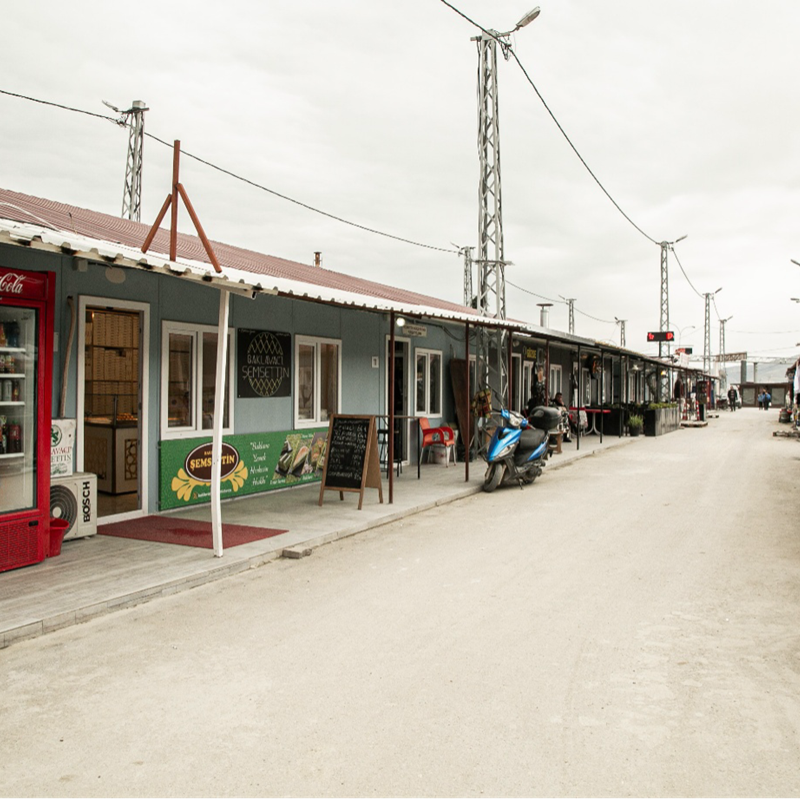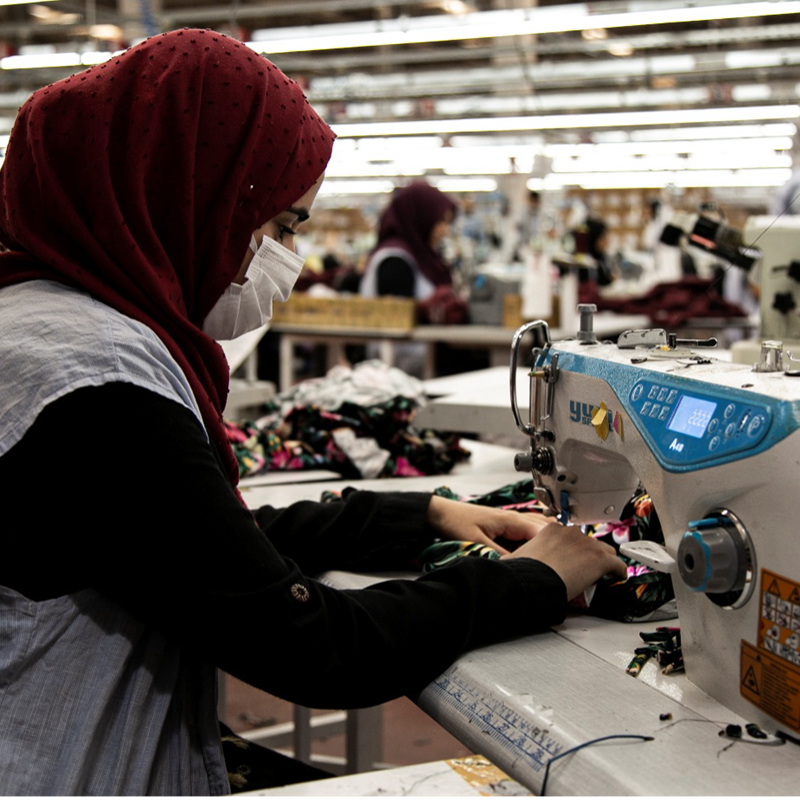
Gender-responsive market integration in post-displacement Türkiye
As gender inequality continues to limit economic opportunities for displaced women in Türkiye, targeted, data-driven interventions are essential for meaningful change. Through its BRIDGES IV programme, DRC is advancing gender-responsive market integration that addresses structural barriers and unlocks women's potential in fragile economic environments.
Gender equality has evolved from a peripheral consideration to a central pillar of effective humanitarian programming. However, achieving meaningful integration requires moving beyond surface-level interventions to address the complex market dynamics and structural barriers that perpetuate inequality.
DRC Türkiye's comprehensive market assessment under its Building Resilience through Initiatives Defining Growth Potential of Economic Solutions for Syrians (BRIDGES) IV programming across Gaziantep, Hatay, İstanbul, Kahramanmaraş, Şanlıurfa, and Kilis reveals that gender-responsive interventions must be grounded in rigorous economic analysis and responsive to rapidly changing market conditions.
The traditional humanitarian approach of immediate response, while necessary, often fails to account for the deeper economic forces that shape gender roles and opportunities.
In Türkiye's current context, where the lira has depreciated, and inflation is very high, gender-responsive programming must navigate unprecedented economic volatility while addressing entrenched inequalities.
The economic landscape of gender inequality
DRC Türkiye’s 2025 market assessment demonstrates how macroeconomic pressures disproportionately impact women's economic participation. High interest rates have dampened investment in sectors traditionally more accessible to women, while international brands increasingly favour cost-efficient alternatives in Asia.
High interest rates have dampened investment in sectors traditionally more accessible to women, while international brands increasingly favour cost-efficient alternatives in Asia. Meanwhile, post-earthquake reconstruction in southern Türkiye has channelled public and private investment into male-dominated industries such as construction and heavy manufacturing. These factors combine to further entrench gender-segregated employment patterns.

Temporary shop structures in Hatay established following the February 2023 earthquakes provide displaced business owners with a space to restore their livelihoods and serve local communities in the affected region.
The assessment reveals a critical labour market mismatch that particularly affects women. While demand for low and semi-skilled workers increases, youth increasingly prefer administrative and skilled positions, creating a gap that women could potentially fill with appropriate support. However, inadequate vocational training programmes and limited access to market-relevant skills development continue to constrain women's participation in formal employment.
Market dynamics and gender integration
The five key sectors identified in DRC Türkiye’s assessment, textiles, food production, shoemaking, agriculture, and hospitality, present varying opportunities for gender-inclusive programming. The agricultural sector, employing approximately 400,000 Syrian refugees, demonstrates both the potential and challenges of informal employment. High informality rates, driven by limited access to information and complex regulations, particularly affect women who often work in supporting roles without formal recognition or protection.
Market assessment findings reveal that successful gender integration requires understanding sector-specific dynamics. In textiles, traditionally a sector with higher female participation, mechanisation and digitalisation driven by labour shortages could either enhance or further marginalise women's roles, depending on how integration is managed. Similarly, the food production sector presents opportunities for women's entrepreneurship, but access to capital and business formalisation remains severely constrained.
Structural barriers in employment and self-employment
The assessment reveals systemic barriers that disproportionately affect women's economic participation. In wage employment, the gap between employer offerings and job seeker expectations is compounded by job insecurity, irregular payments, and inadequate safety standards – issues that particularly impact women who often have fewer alternative options. The prevalence of informal employment, while providing flexibility, can also perpetuate vulnerability and limit women's access to social protection.

A participant of DRC Türkiye’s Wage Subsidy scheme in Şanlıurfa is at her workstation in a local garment factory. The programme supports both refugee and host community members in accessing formal employment.
For self-employment, barriers are even more pronounced. Access to financial support is limited, with existing programs requiring co-financing or personal contributions that women, who typically have less access to capital, cannot afford. The requirement for mastership certificates for business formalisation creates additional obstacles for women entrepreneurs, particularly in sectors where traditional apprenticeship systems have excluded women.
Policy framework challenges
The assessment reveals significant challenges in the policy and regulatory environment that particularly affect women's economic participation. Complex work permit procedures, bureaucratic business formalization processes, and unclear regulations create barriers that women, often with limited access to information and support networks, struggle to navigate independently.
Toward equitable market integration
Achieving gender integration in Türkiye's current context requires programming that addresses both immediate needs and longer-term structural transformation. This means designing interventions that are responsive to market dynamics while challenging the underlying systems that perpetuate gender inequality.
The market assessment demonstrates that effective gender programming must account for macroeconomic pressures, sector-specific opportunities and constraints, social cohesion dynamics, and policy framework challenges. Success requires moving beyond isolated interventions to comprehensive approaches that address the full spectrum of barriers women face in accessing economic opportunities.
DRC Türkiye’s experience illustrates that when humanitarian programming aligns gender-responsiveness with rigorous market analysis and dynamic implementation, significant progress is possible even in challenging contexts. The key lies in recognising that gender equality is not just a humanitarian imperative but an economic necessity for sustainable recovery and development.
Disclaimer
BRIDGES IV programming is made possible with funding from the German Federal Ministry of Economic Cooperation and Development (BMZ) via KfW Development Bank.

